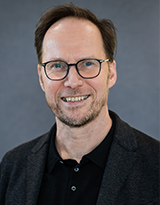Selected publications (out of > 300)
Bleischwitz, R., Kirschke, S., Adam, N (2021) Implications of the Resource Nexus on International Relations: The Case of the Grand Ethiopian Renaissance Hydropower Dam. Zeitschrift für Aussen- und Sicherheitspolitik, https://doi.org/10.1007/s12399-021-00878-1
Wakdok, S. S., & Bleischwitz, R. (2021). Climate change, Security, and the Resource Nexus: Case study of Northern Nigeria and Lake Chad. Sustainability 13 (19). doi:10.3390/su131910734. Special Issue: Environmental Policy Design and Implementation: Toward Sustainable Society, Academic Editors: Adam P. Hejnowicz and Jessica P. R. Thorn
Bleischwitz, R., Spataru, C., VanDeveer, S. D., Obersteiner, M., van der Voet, E., Johnson, C., Andrews-Speed, P, Boersma, T, Hoff, H, van Vuuren, D. P. (2018). Resource Nexus Perspectives towards the UN Sustainable Development Goals. Nature Sustainability Perspective. Doi:10.1038/s41893-018-0173-2.
GENG, Y., Sarkis, J., & Bleischwitz, R. (2019). How to globalize the circular economy. Nature, 565, 153-155. Doi:10.1038/d41586-019-00017-y.
Bleischwitz, R., Nechifor, V., Winning, M., Huang, B., Geng, Y.: Extrapolation or saturation – an exploration into growth patterns, development stages and decoupling, Global Environmental Change 48 (2018) 86 – 96. https://doi.org/10.1016/j.gloenvcha.2017.11.008
Bleischwitz, R., Hoff, H., Spataru, C., vd Voet, E., VanDeveer, S. (Eds.) (2018): Routledge Handbook of the Resource Nexus.
Domenech, T. / Bleischwitz R. et al (2019) Mapping Industrial Symbiosis Development in Europe_ typologies of networks, characteristics, performance and contribution to the Circular Economy. Resources, Conservation and Recycling 141, 76-98.
Carvalho, P., Spataru, C., & Bleischwitz, R. (2018). Integration of water and energy planning to promote sustainability. Journal of Sustainable Development of Energy, Water and Environment Systems.
Huang, B, (…) Bleischwitz, R. (2018) Construction and demolition waste management in China through the 3R principle. Resources, Conservation and Recycling 129: 36 - 44.
McDowall, W. A. S., Geng, Y., Huang, B. J., Bartekova, E., Bleischwitz, R., Turkeli, S., Domenech Aparisi, T. (2017). Circular Economy Policies in China and Europe. Journal of Industrial Ecology
Bleischwitz, R., & Perincek. (2015). Stichwort: Ressourcenpolitik. Handwörterbuch Internationale Politik (pp. 418-427). Herausgeber: Wichard Woyke / Johannes Varwick. Opaline Toronto: utb Budrich.
Andrews-Speed, P., Bleischwitz, R, Boersma, T., Johnson, C., Kemp, G., & VanDeveer, S. (2015). Want, Waste or War? The Global Resource Nexus and the Struggle for Land, Energy, Food, Water and Minerals. Routledge.
Bleischwitz, R., Dittrich, M., & Pierdicca, C. (2012). Coltan from Central Africa, international trade, and implications for any certification. Resources Policy, 37 (1), 19-29. Doi:10.1016/j.resourpol.2011.12.008
Policies for a Green Economy, Springer Publisher
Greenleaf.
Wirtschaftspolitik, Metropolis (=Habilitation)
Further information
ResearchGate: https://www.researchgate.net/profile/Raimund-Bleischwitz
ORCID: https://orcid.org/my-orcid?orcid=0000-0001-8164-733X
Google Scholar: https://scholar.google.de/citations?user=FKuR2UsAAAAJ&hl=de
Website: https://iris.ucl.ac.uk/iris/browse/profile?upi=RBLEI92
Wikipedia: https://en.wikipedia.org/wiki/Raimund_Bleischwitz
Social Media
Twitter: @BleischwitzR
Besides academic merits Raimund considers himself a builder of research institutions. Prior to ZMT he was Director of The Bartlett School of Environment, Energy and Resources at University College London, a department with an annual turnover of £25M, 200 staff and 150 PhD students. Before he established the Institute for Sustainable Resources at UCL as Deputy Director. Raimund spent time abroad at the Transatlantic Academy in Washington DC, in China, and Japan, and he worked for many years at the College of Europe in Bruges, Belgium, and at the Wuppertal Institute, DE. Raimund's leadership style is based on values of inclusion, transparency, diversity, and enabling of staff. He is actively reaching out to stakeholders and the public as ambassador for ZMT and mission-oriented sustainability transformations.





